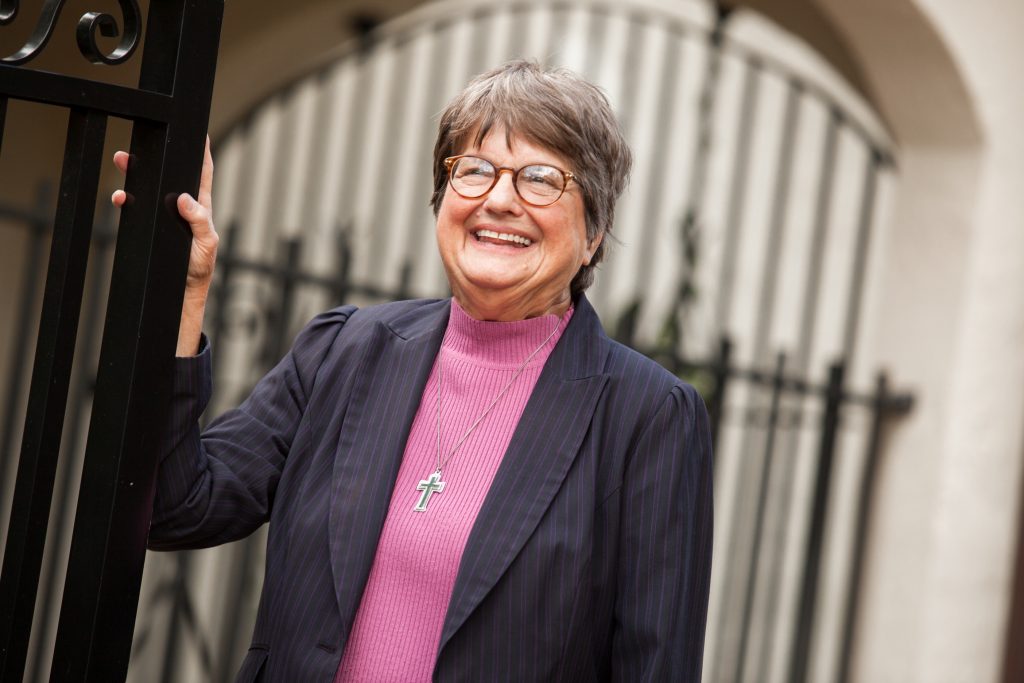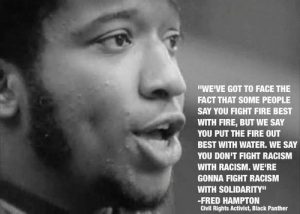Capital punishment has been used in the United States since its independence from the United Kingdom and is still applied in many of the 50 states today, with most executions in Texas, Virginia, Georgia, and Alabama. Over time, advocates have agreed that the death penalty is morally wrong and they argued that it should be considered unconstitutional, yet they have not achieved an end to capital punishment in either state legislatures or in the Supreme Court.1
During the 1700’s, advocates against the death penalty were able to restrict this punishment to those committed heinous crimes. In 1847, the anti-death penalty community helped capital punishment to be removed from Michigan. This was changed after World War I ended. In 1924, the state of Nevada decided to use lethal gas as an execution process. Then came the execution of Gee Jon for murder, which brought back death as the punishment for inflicting death or murder. 2 Anti-death penalty movements did not regain strength until Sister Helen Prejean helped to cast the debate in different terms.

Since 1981, Sister Helen Prejean has been a strong voice, and a most prominent one in the anti-death penalty community. Most humans and governments will not heed God’s commandment Thou Shall not Kill, but Sister Prejean became a strong advocate for that commandment. Beyond the religious imperative, Prejean explains how capital punishment is not useful in any way and is very dysfunctional. She has dedicated her life to God in the prison ministry in New Orleans. While Sister Prejean was living in the St. Thomas housing project, she began to write to a man who was convicted of killing two teenagers, Patrick Sonnier. Sonnier was to be executed by the electric chair in the State Prison of Louisiana.3
While Sister Prejean continuously visited Sonnier, she realized that executions were a huge issue, not only in Louisiana, but around the world. Sister Prejean wrote about her experiences in the book she wrote Dead Man Walking: An Eyewitness Account of the Death Penalty.4 She writes and explains how Louisiana’s prison system corrupts those who are involved with carrying out the execution. Especially security guards or “prison wardens” are not alert when working, along with working in that environment, is the feeling of being stressed. The stress can cause them to react in a certain ways toward prisoners and even accept the death penalty against them.5 Prejean mentions how many politicians support the death penalty mainly because they do not want to be mocked for being weak on crime by having an anti-death penalty stance.6
Helen Prejean during these times took the initiative to spend time with the victims’ families and understand why the death penalty is a win for them. The reason the victims’ families believe this is a pro for them is because it is “healing” and they receive “faux closure”. During those fifteen years, she continued to witness five other executions in Louisiana and to this day gives the younger generation information on the death penalty by writing and giving lectures.7
Prejean always took the anti-death penalty to the political system and even caused a few battles with some victories that were not big, but in that time it was still something to her. She did everything she could to gain justice, but the movement ultimately could not completely end capital punishment in the US.8

Prejean did her best to abolish the death penalty and she always gave many reasons for it, but with the issues coming against the fear of criminals and the devaluation of human lives, it is still unlikely to see its eradication in the US. Today, Prejean as the founder of “Survive” runs this victim’s advocacy group in New Orleans. In addition to that, she counsels inmates who are on death row and she provides support to the families of victims who were murdered.
Barry Scheck’s Innocence Project helps those who are innocent to increase awareness and prevent execution. Prejean has received an award from the Innocence Project of Florida for her outstanding work in advocating against the death penalty. “Sister Helen asked…”, during her speech, “…but what about the people advocating and fighting for them and the people working at innocence projects?”.9
No matter the outcome, fighting for what is morally right continues to drive advocates who stand against the death penalty. Prejean will continue to investigate flaws in the death penalty system which has led to many innocents being wrongly executed. Sister Prejean questions the justice system because of the discriminatory way that capital punishment is disproportionately applied to minorities. As she continues, there is still hope in Washington for the Death Penalty to be removed. Senator Miloscia warns against the killing of innocent people, he calls these “improper death penalty executions.”10 Although many still support the death penalty, change occurs when new elected officials like Governor Inslee pronounce themselves against capital punishment. As we learned from Sister Prejean, fighting for justice is a moral commandment.
- George Brauchler and Rich Orman, “Lies, Damn Lies, and Anti-Death Penalty Research,” 93, no. 3 (2005): 635-714. ↵
- McLaughlin, Jolie. “The Price of Justice: Interest-Convergence, Cost, and The Anti-Death Penalty Movement,” Northwestern University Law Review,108, no. 2 (2014): 675-710. Academic Search Complete, EBSCOhost. ↵
- “Biography” Sister Helen Prejean. https://www.sisterhelen.org/biography/.(2018). ↵
- Helen Prejean, Dead man walking: an eyewitness account of the death penalty in the United States, (New York: Vintage Books, (1994). ↵
- Lewis, Dorothy Otnow, Catherine A. Yeager, Pamela Blake, Barbara Bard, and Maren Strenziok. “Ethics Questions Raised by the Neuropsychiatric, Neuropsychological, Educational, Developmental, and Family Characteristics of 18 Juveniles Awaiting Execution in Texas.” Journal Of The American Academy Of Psychiatry And The Law, 32. No.4 (2004): 408-429 PsycINFO, EBSCOhost. ↵
- Daniels, Kristen Whitney. “Helen Prejean sways hearts with stories.” National Catholic Reporter 53(24), (2017): 1a-2a. ↵
- Press Release. “Innocence: Another Exoneration from Death Row—Reginald Griffin of Missouri,.” Death Penalty Information Center. (2015). ↵
- Mallory, Conally. “Abolitionists at home and abroad: a right to consular assistance and the death penatly.” Melbourne Journal Of International Law no. 1 (2016). ↵
- De La Fuenta, Alejandra. “My Experience at Innocence Project of Florida’s 2016 Steppin’Out Spring Gala.” Plain Error: The Official Blog of The Innocence Project of Florida. (2016) ↵
- Lauren Gill, “End of the Death Penalty? Washington Could Become the Next State to Abolish Capital Punishment” Newsweek, (2018). ↵



121 comments
Edgar Ramon
This is certainly a big issue. I’m not wholly on one side or the other on this, just because the number of people executed is very low, and some people die before their execution. However I do not know all the facts, and this Sister is definitely acting on what she believes a good person would do. Counter to this I do think there has been a lengthy history of capital punishment and there may be times in which it is necessary. Because there are people who are evil, such as murderers, or even mass murderers. Then again there should be the ability to appeal several times so that the wrong people aren’t put to death
Destiny Renteria
I agree with you on your last sentence. Many wrongful convictions should be given a second chance.
Iris Henderson
The image and title pairing of this article immediately caught my attention. In my opinion, this was an interesting topic to choose, as it can be a very controversial one. I have heard stories of innocent people being wrongfully convicted and a death penalty is the harshest penalty out. It is awesome that Sister Prejean is fighting for what she believes in and offering these men and women some hope in what seems to be many of their last moments here on earth. I still don’t know where my values align with this subject but I think the offer provided great appeal to anti-death penalty position.
Destiny Renteria
Thank you Iris!
Miranda Alamilla
It’s not hard to see that the death penalty is a widely debated and largely controversial topic. However, this author brings to light many valid points that Sister Prejean preaches in God’s name. It was amazing to read what an inspirational woman Prejean has been. She took the time to listen to victim’s families and why they felt that death penalty is necessary and tried to understand where they were coming from. She also devotes much of her time counseling inmates who are on death row and provides support to families who have suffered the loss of a loved one. A truly beautiful story and it honestly makes your readers think about their stance on this topic. Great article, Destiny!
Destiny Renteria
Thank you so much!
Belia Camarena
Great job writing this article! It was very informative and I learned of a woman I had never heard of before. I think it is incredible the work that Sister Prejean does. She fights for the underprivileged and minorities by taking a largely unpopular stance. Through her excellent show of charity, she aims to convert the mindset of those who favor the death penalty. I consider her a role model, and an extremely strong woman.
Destiny Renteria
Thank you !
Samuel Stallcup
Really nice topic. I feel that you approached this topic very well-mannered. I feel most people would inject too much of their opinion, yet this article remained pretty factually sound. The story that Sister Helen has made for herself is quite remarkable since her approach was pretty outstanding; not many people really want to speak with people on death row.
Destiny Renteria
Appreciate it !
Rafael López-Rodírguez
This was a great article to read! The death penalty is a very sensitive topic in my opinion because most people think it’s the easy way out to get rid of criminals. Reading and learning about Sister Helen, standing up against the death penalty was amazing and enriching. Not everyone has the courage she has to stand up to a situation like the death penalty. In our world we need more people like her because we can change the world one step at a time with people like her. Great job!
Destiny Renteria
Thank you very much!
Max Lerma
Thank you for writing this article! I had never heard of Sister Prejan prior to reading your article, but you have sparked my interest enough into finding out more about her. She seems determined to make a difference despite the odds being stacked against her. I hope more people listen to Sister Prejan and more people have a chance to read your article to discover who this woman is.
Destiny Renteria
Thank you!!
Gilberto Gomez
A very strong article, with a very controversial topic. Sister Prejean truely understands and believes in the word of God. I think that the death penalty will always be a topic of many opinions. Although many strongly disagree and many still agree with the death penalty, I think that we should rid of this kind of law and find other means of action.
Thomas Fraire
Capital punishment is a subject that is fiercely disputable, and has been for a long time. I had no clue who Prejean was before perusing this article, yet my eyes were opened with her story. It’s motivating that she battles for what she has faith in, and shields God’s assertion. She has dauntlessness that numerous need, and a voice that won’t be smothered. An exceptionally elegantly composed bit of work, great job!
Destiny Renteria
Thank you!
Kimberly Simmons
The death penalty is a topic that is wildly controversial, and has been for many decades. I had no idea who Prejean was prior to reading this article, yet my eyes were opened with her story. It’s inspiring that she fights for what she believes in, and defends God’s word. She has bravery that many lack, and a voice that will not be suppressed. A very well-written piece of work, good job!
Destiny Renteria
Thank you!!